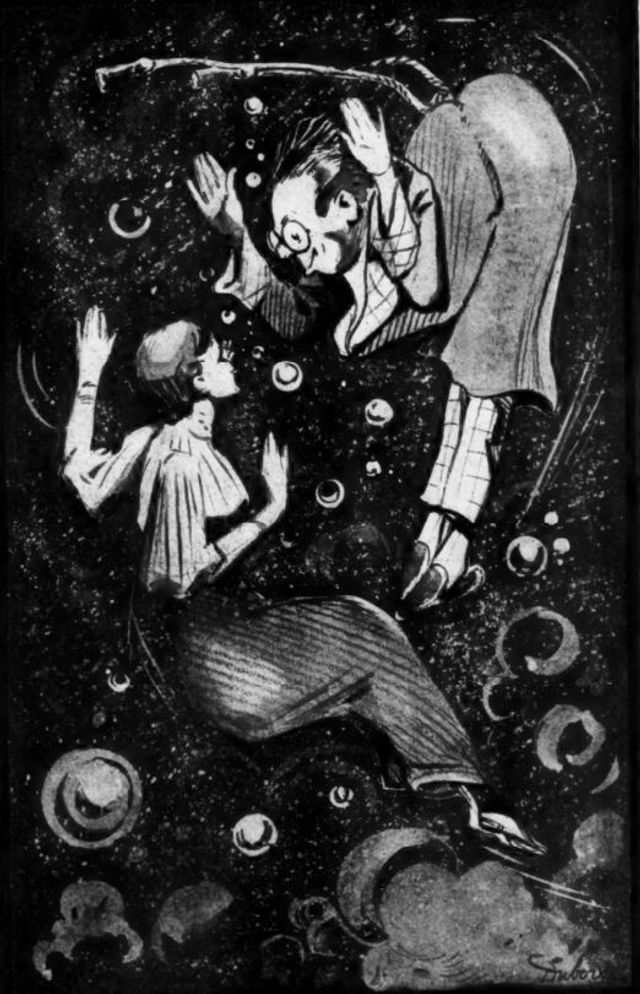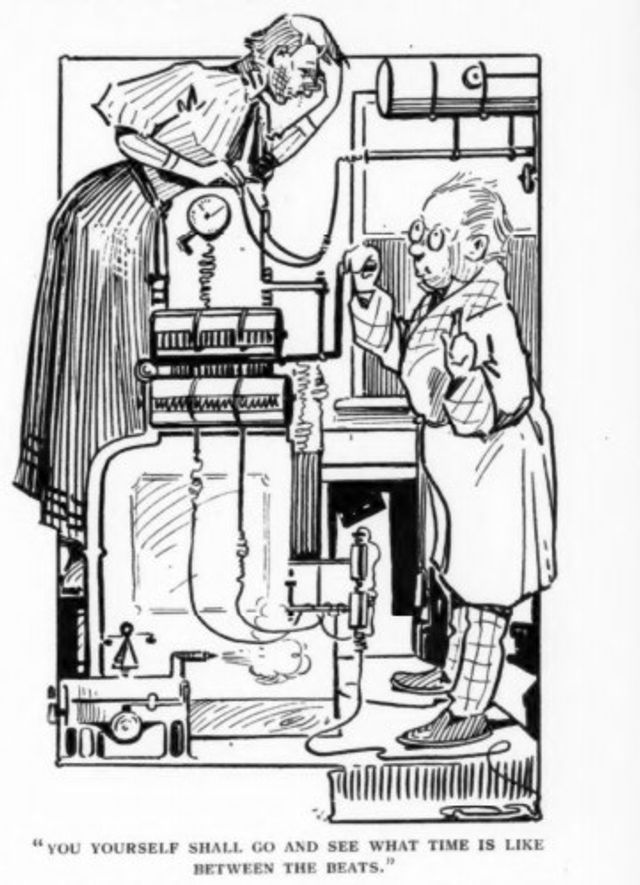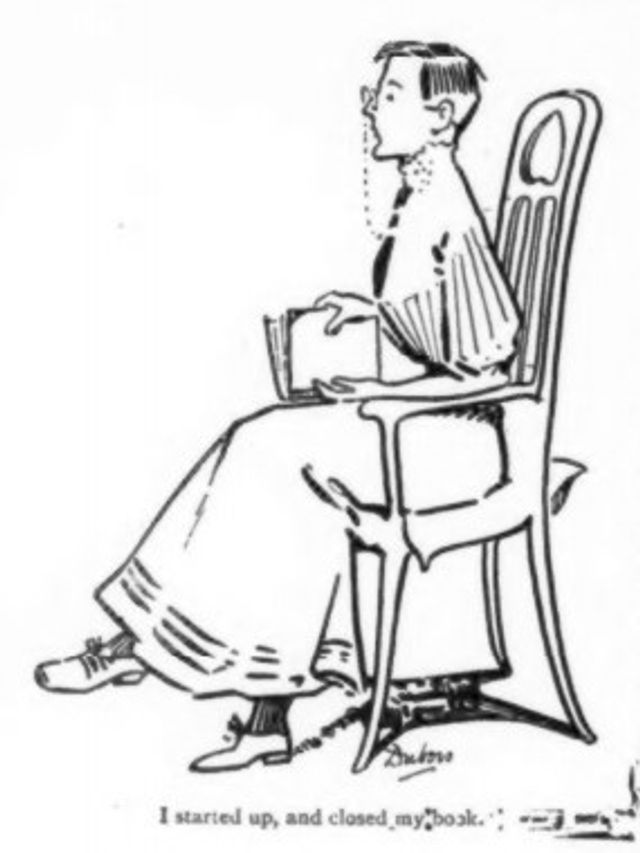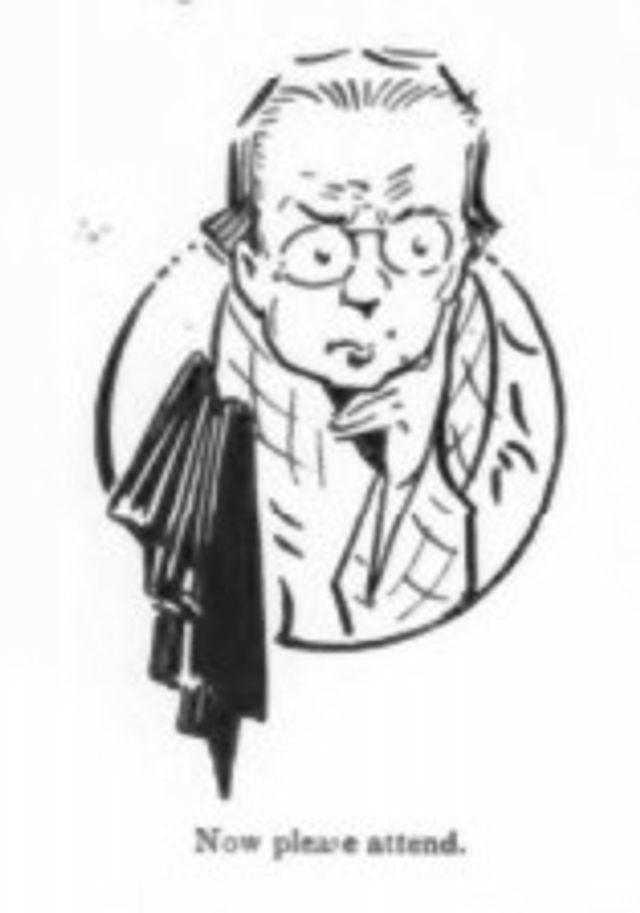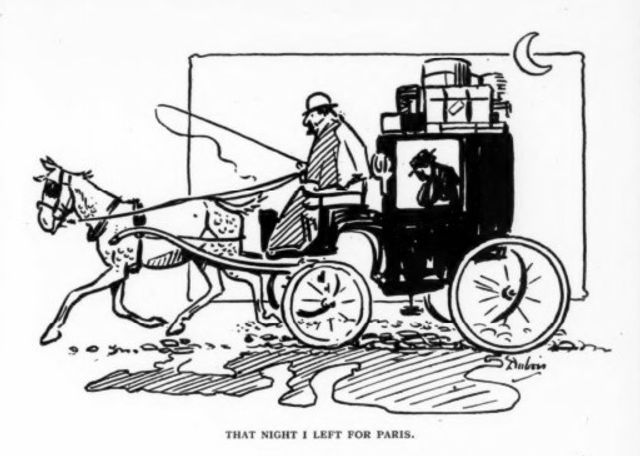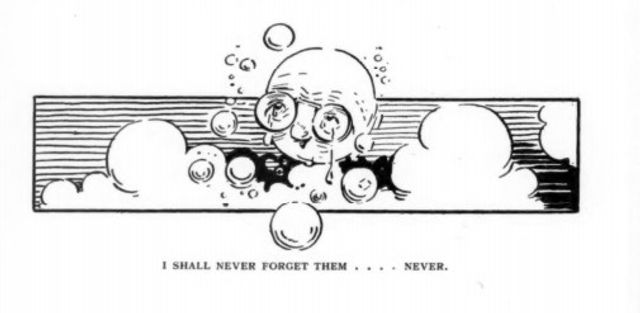-
Vijay Fafat
- Published on
There were 6 mad-cap sci-fi stories written by the author about one Prof. Mudgewood in the collection, “The Professor’s Experiments”, which appeared in successive issues of “The Idler Magazine” from July 1019 to Dec, 1910. The sixth and last one appeared under the title, “The Dimensions of Time”.
As happens in all such stories, he was a mathematical genius, though one who always wanted to put his mathematical theories to test practically. His assistant, Gertrude Delaney, who also catalogued all of the professor’s experiments, wrote in her memoir:
“Apart from his being perhaps the most expert experimentalist of his day, he was also a most profound mathematician. His experimental work was all based upon mathematical research. Had it not been so, he could never have discovered the wonderful Retardatory Forces, which 1 have made the subject of a former memoir. His favourite method was to work out mathematical possibilities, and then to attempt to work them out on practical lines. I cannot describe these matters explicitly, for though myself a mathematician, 1 have never been able to plunge into the depths of formulae in which the Professor revelled ; his deepest and most profound calculations are still a mere craze of figures and letters to me [.] To him the fourth dimension was a reality; he could live in it, touch it, and even speak of it so cunningly that for the moment he could make the listener realise it and understand it; but when the magic of his explanation and personality wore off, alas! the fourth dimension, elusive as ever, became once more unthinkable.”
The professor’s lucid explanation of the fourth dimension follows:
“ Well, then, in the first place we exist in a land of three dimension length, breadth, height—and we can ordinarily conceive of no extra or fourth dimension. But we can conceive of beings in the lower dimensions, and a being in two dimensions would know only of length and breadth, and would have no conception of height; planes or plane surfaces would be the limit of his knowledge, and the third dimension would be as unthinkable to him as the fourth dimension is to us. Again, a being in one dimension would only know of length; both breadth and height would be unthinkable. Do you follow ? ”
I nodded.
“Now please attend.
“ Then,” continued the Professor, “ it is no use our trying to imagine what a fourth dimension article looks like —that is as impossible as for a straight line to imagine what a plane looks like. To him only a straight line would be thinkable. We can, however, by analogy, arrive at some of the properties of the fourth dimension, or, rather, of a three-dimension article existing amidst an unknown fourth dimension, and yet not realising it. Am I still clear ? ”
“ Yes,” I replied.
“ Very well, then, firstly as to the constitution of a fourth-dimension article. A plane surface is bounded by lines; in other words, a two-dimension article has a surface composed of articles of one dimension.”
“ Yes.”
“ What is a solid, or three-dimension article, bounded by, then ? ” queried the Professor.
“ By planes…”
“ Then what is a fourth-dimension article bounded by ? ”
“ By solids of three dimensions,” 1 exclaimed.
“ Quite right—quite right,” he smiled. “ But to you that is an unthinkable proposition. Nevertheless, since a picture of a solid is in two dimensions —for instance, your photograph has length and breadth, but no thickness —so a picture of the fourth dimension is in three dimensions, and we can therefore bring our imagination nearer to facts, for this means that such a picture is a solid; instead of illustrating fourth-dimension articles by means of diagrams, we must use models. You have seen my cuboid picture model?”
From that, and the geometrical definition that a line has no width and a plane has no height, enabling infinitely many of them to fit side by side without amounting to a “thickness”, the professor explains that the fourth dimension is just the interstices of Time - frames where multiple realities can exist without being aware of each other.
The professor, of course, has created a device to access this “Intertime” and some silly adventure takes place in the fourth dimension, leading to the professor getting lost forever in the gaps in our Time…

